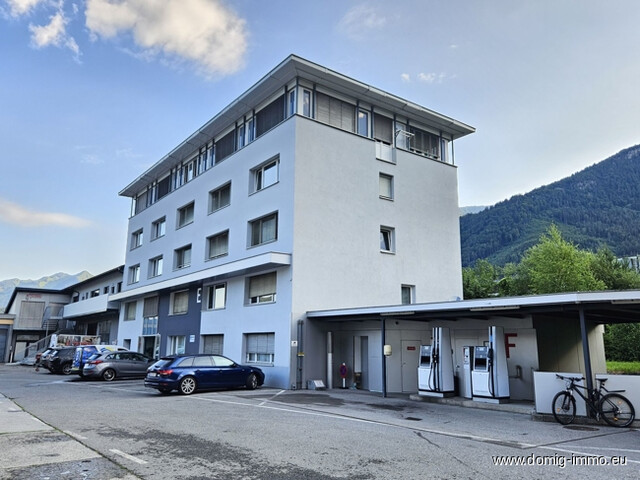These Are the Best Chocolate Advent Calendars 2025
Advent calendars sweeten the wait until Christmas - but how fair and environmentally friendly is the chocolate behind them? The human rights organization Südwind and Austria's largest environmental protection organization GLOBAL 2000 are presenting a sustainability check of 12 chocolate advent calendars for the first time this year, which were available in Austrian retail until November 5, 2025. This offers a practical service for consumers who want to snack sustainably. At the same time, Südwind and GLOBAL 2000 are appealing to politics to oblige companies to ecological and social responsibility along the entire supply chain.
GLOBAL 2000 and Südwind Urge Politics to Act
"Politics and companies must make sustainable chocolate enjoyment the norm. For this, a legal framework with binding sustainability criteria is needed. Conscious consumption alone is not enough," appeal GLOBAL 2000 and Südwind in unison.
In addition to the social and ecological seals of approval on the individual products, the evaluation of the companies by the Chocolate Scorecard, which is backed by a coalition of universities and civil society organizations from both production and consumer countries, was also included. Here, chocolate manufacturers are graded and evaluated regarding additional sustainability criteria such as transparency.
Austrian Chocolate Manufacturers at the Forefront
The test winners are the fair advent calendar from EZA and the Labooko advent calendar from Zotter. Both meet the highest social and ecological criteria. The countdown calendar from Tony’s Chocolonely is FAIRTRADE certified and in the Chocolate Scorecard, the company is rated "Green" in the social area. The private labels from Billa, Hofer, and Lidl as well as the Manner calendar are at least part of the FAIRTRADE cocoa program.
Large Corporations with Poor Ratings
For major brands like Ferrero, Milka, Nestlé, and Lindt, the tested calendars show no or only limited independent seals of approval. Also, in several scorecard evaluations, the chocolate giants lack ambition.
Anna Leitner, spokesperson for resources and supply chains at GLOBAL 2000: "In conventional cocoa farming, pesticides that are extremely dangerous for humans and nature are still used. However, organic products show that enjoyable chocolate is possible without environmental toxins and destruction of nature. For chocolate advent calendars to continue bringing us joy for a long time, a change in thinking is necessary."
"Living wages and adherence to strict pesticide regulations should be a mandatory standard - not a matter of goodwill. As long as major brands rely on non-transparent supply chains, cocoa farming remains a risk area in terms of child labor and deforestation," emphasizes Gudrun Glocker, Südwind spokesperson for sustainable nutrition.
Background: How the Check Works
12 advent calendars were evaluated - one per company, according to Idealo's most popular calendar on 5.11.2025. Product labels (including FAIRTRADE, organic) as well as company-wide practices according to the Chocolate Scorecard were analyzed. The evaluation includes over 80 questions in 7 areas: transparency & traceability, living wages, child & forced labor, deforestation & climate, agroforestry systems, pesticides, gender equality. The results are presented as percentage values. Austrian manufacturers (Zotter, EZA, and Manner) are not evaluated in the Chocolate Scorecard and are marked in red-white-red in the overview.
Child Labor and Lack of Transparency in Cocoa Farming
Cocoa is still associated with child and forced labor, pesticide exposure, deforestation, price pressure, and lack of transparency in many places. In Ghana and the Ivory Coast alone, the main cocoa-growing countries, about 1.5 million children work under exploitative conditions on cocoa farms.
Südwind and GLOBAL 2000 demand the rapid, comprehensive implementation of an effective supply chain law in Austria, transparency up to the cooperative level, living wages, a stop to deforestation, the reduction of highly hazardous pesticides, and the promotion of agroforestry systems.
(Red)
This article has been automatically translated, read the original article here.
Du hast einen Hinweis für uns? Oder einen Insider-Tipp, was bei dir in der Gegend gerade passiert? Dann melde dich bei uns, damit wir darüber berichten können.
Wir gehen allen Hinweisen nach, die wir erhalten. Und damit wir schon einen Vorgeschmack und einen guten Überblick bekommen, freuen wir uns über Fotos, Videos oder Texte. Einfach das Formular unten ausfüllen und schon landet dein Tipp bei uns in der Redaktion.
Alternativ kannst du uns direkt über WhatsApp kontaktieren: Zum WhatsApp Chat
Herzlichen Dank für deine Zusendung.








